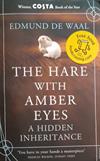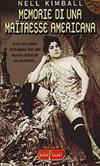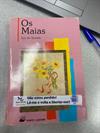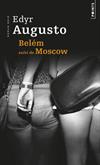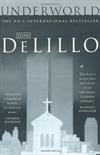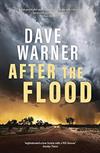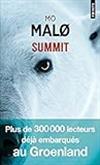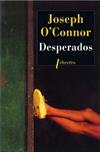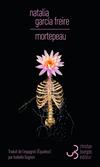
What Have You Changed Your Mind About?: Today's Leading Minds Rethink Everything (Edge Question Series)
1 journaler for this copy...
8 stars: Very good.
From the back cover: Edge (www.edge.org) recently asked 150 high powered intellectuals to discuss their most telling missteps and reconsiderations: What have you changed your mind about? The answers were brilliant, eye opening, fascinating, sometimes shocking and certain to kick-start countless passionate debates. Steven Pinker on the future of human evolution, Richard Dawkins on the mysteries of courtship, Sam Harris on the indifference of Mother Nature, Nassim Nicholas Taleb on the irrelevance of probability, Chris Anderson on the reality of global warming, Alan Alda on the existence of God, Ray Kurzweil on the possibility of existential life, Brian Eno on what it means to be a "revolutionary", Helen Fisher on love, fidelity, and the viability of marriage, Irene Pepperberg on learning from parrots and many others.
------------------
Another entry in the very good series of annual questions from the edge.org. Of course the content varies with the author, but the essays are 1-4 pages. Many by scientists, but also social scientists and other intellectuals. I enjoy this series very much, which gives me much to think about. Some excerpts I liked:
Daniel Dennett: Neurons are robots; they are certainly not conscious in any rich sense-- remember, they are eukaryotic cells, akin to yeast cells or fungi. If individual neurons are conscious, then so is athlete's foot.
Charles Seife: In a democracy, ideas are protected. It's the sacred right of the citizen to hold--and to disseminate--beliefs that the majority disagrees with, ideas that are abhorrent, ideas that are wrong. However, scientists are not free to be completely open minded. A scientist stops being a scientist if he clings to discredited notions. The basic scientific urge to falsify, to disprove, to discredit ideas clashes with the democratic drive to tolerate and protect them. This is why even those politicians who accept evolution will never attack those politicians who don't; at least publicly, they cast evolutionary theory as a mere personal belief. Attempting to squelch creationism smacks of elitism and intolerance--it would be political suicide. Yet this is exactly what biologists are compelled to do; they exorcise falsehoods and drive them from the realm of public discourse.
Lawrence Krauss: And that is what I find so satisfying about science. not just that I could change my own mind because the evidence forced me to, but that the whole community could throw out a cherished notion--and so quickly! That is what makes science different from religion, and that is what makes it worth continuing to ask questions about the universe... because it never fails to surprise us.
Alan Alda: The most striking thing about the scientists I met was their complete dedication to evidence. It reminded me of the wonderfully plainspoken words of Richard Feynman, who felt it was better not to know than to believe something that was wrong. The problem for me was that just as I couldn't find any evidence that there was a god, I couldn't find any evidence that there wasn't a god. At first, this seemed a little wimpy, but after awhile I began to hope it might be an example of Feynman's heroic willingness to accept, even glory in, uncertainty.
Carolyn Porco: If we're not mindful, we could stagger again. When the truth becomes problematic, when intellectual honesty clashes with political expediency, when voices of reason are silenced to mere whispers, when fear alloys with ignorance to promote physical might over intelligence, integrity and wisdom, the practice of science can find itself imperiled. At that point, can darkness be far behind? To avoid so dangerous a tipping point requires us to recognize the distasteful possibility that it could happen again at any time. I now suspect the danger will be forever present, the need for vigilance forever great.
Alison Gopnik: I still think we're designed to find out about the world, but that's not our most important gift. For human beings, the really important evolutionary advantage is our ability to create new worlds. Look around the room you're sitting in. Every object in that room, the right angled table, the book, the paper, the computer screen, the ceramic cup, was once imaginary. Not a thing in the room existed in the Pleistocene. Every one of them started out as an imaginary fantasy in someone's mind. And that's even more true of people. All the things I am--a scientist, a philosopher, an atheist, a feminist--all of those kinds of people started out as imaginary ideas too. I'm not making some relativist, postmodern point here; right now, the computer and the cup and the scientist and the feminist are as real as anything can be. But that's just what our minds do best--take the imaginary and make it real. I think now that cognition is also a way we impose our minds on the world.
From the back cover: Edge (www.edge.org) recently asked 150 high powered intellectuals to discuss their most telling missteps and reconsiderations: What have you changed your mind about? The answers were brilliant, eye opening, fascinating, sometimes shocking and certain to kick-start countless passionate debates. Steven Pinker on the future of human evolution, Richard Dawkins on the mysteries of courtship, Sam Harris on the indifference of Mother Nature, Nassim Nicholas Taleb on the irrelevance of probability, Chris Anderson on the reality of global warming, Alan Alda on the existence of God, Ray Kurzweil on the possibility of existential life, Brian Eno on what it means to be a "revolutionary", Helen Fisher on love, fidelity, and the viability of marriage, Irene Pepperberg on learning from parrots and many others.
------------------
Another entry in the very good series of annual questions from the edge.org. Of course the content varies with the author, but the essays are 1-4 pages. Many by scientists, but also social scientists and other intellectuals. I enjoy this series very much, which gives me much to think about. Some excerpts I liked:
Daniel Dennett: Neurons are robots; they are certainly not conscious in any rich sense-- remember, they are eukaryotic cells, akin to yeast cells or fungi. If individual neurons are conscious, then so is athlete's foot.
Charles Seife: In a democracy, ideas are protected. It's the sacred right of the citizen to hold--and to disseminate--beliefs that the majority disagrees with, ideas that are abhorrent, ideas that are wrong. However, scientists are not free to be completely open minded. A scientist stops being a scientist if he clings to discredited notions. The basic scientific urge to falsify, to disprove, to discredit ideas clashes with the democratic drive to tolerate and protect them. This is why even those politicians who accept evolution will never attack those politicians who don't; at least publicly, they cast evolutionary theory as a mere personal belief. Attempting to squelch creationism smacks of elitism and intolerance--it would be political suicide. Yet this is exactly what biologists are compelled to do; they exorcise falsehoods and drive them from the realm of public discourse.
Lawrence Krauss: And that is what I find so satisfying about science. not just that I could change my own mind because the evidence forced me to, but that the whole community could throw out a cherished notion--and so quickly! That is what makes science different from religion, and that is what makes it worth continuing to ask questions about the universe... because it never fails to surprise us.
Alan Alda: The most striking thing about the scientists I met was their complete dedication to evidence. It reminded me of the wonderfully plainspoken words of Richard Feynman, who felt it was better not to know than to believe something that was wrong. The problem for me was that just as I couldn't find any evidence that there was a god, I couldn't find any evidence that there wasn't a god. At first, this seemed a little wimpy, but after awhile I began to hope it might be an example of Feynman's heroic willingness to accept, even glory in, uncertainty.
Carolyn Porco: If we're not mindful, we could stagger again. When the truth becomes problematic, when intellectual honesty clashes with political expediency, when voices of reason are silenced to mere whispers, when fear alloys with ignorance to promote physical might over intelligence, integrity and wisdom, the practice of science can find itself imperiled. At that point, can darkness be far behind? To avoid so dangerous a tipping point requires us to recognize the distasteful possibility that it could happen again at any time. I now suspect the danger will be forever present, the need for vigilance forever great.
Alison Gopnik: I still think we're designed to find out about the world, but that's not our most important gift. For human beings, the really important evolutionary advantage is our ability to create new worlds. Look around the room you're sitting in. Every object in that room, the right angled table, the book, the paper, the computer screen, the ceramic cup, was once imaginary. Not a thing in the room existed in the Pleistocene. Every one of them started out as an imaginary fantasy in someone's mind. And that's even more true of people. All the things I am--a scientist, a philosopher, an atheist, a feminist--all of those kinds of people started out as imaginary ideas too. I'm not making some relativist, postmodern point here; right now, the computer and the cup and the scientist and the feminist are as real as anything can be. But that's just what our minds do best--take the imaginary and make it real. I think now that cognition is also a way we impose our minds on the world.

